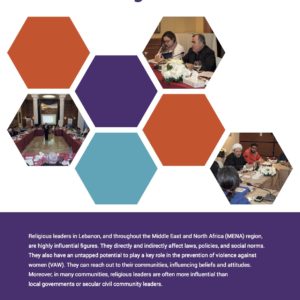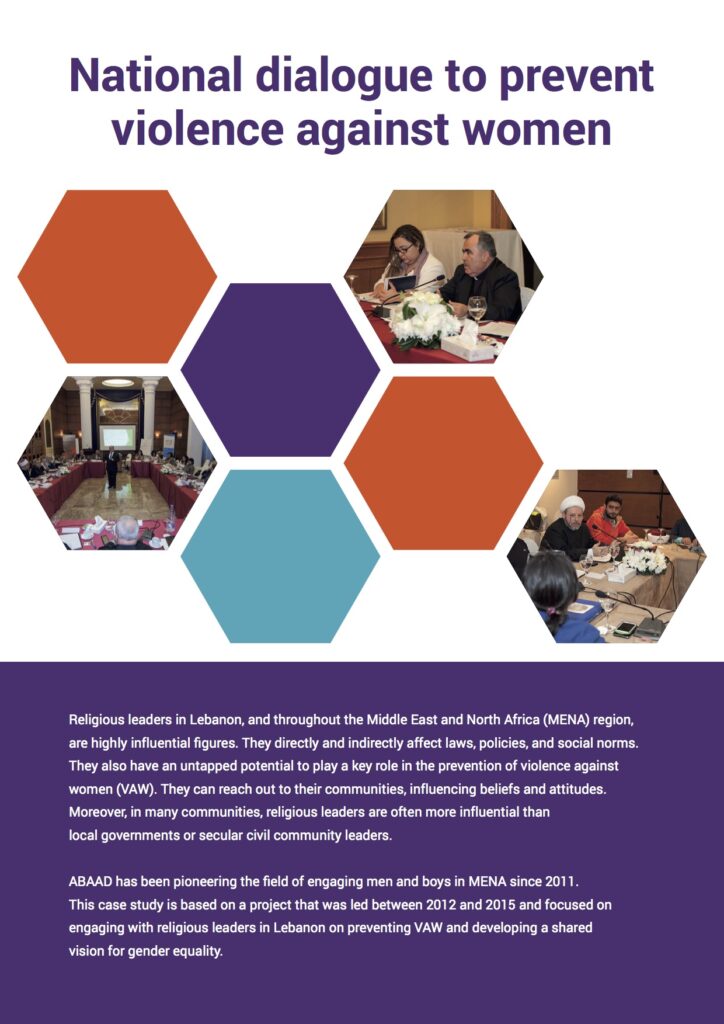This Prevention+ case study highlights the work in Lebanon with religious leaders. Throughout the Middle East and North Africa (MENA) region, religious leaders are highly influential figures who directly and indirectly affect laws, policies, and social norms. ABAAD has been pioneering the field of engaging men and boys in MENA since 2011. This case study is based on a project that was led between 2012 and 2015 and focused on engaging with religious leaders in Lebanon on preventing violence against women and developing a shared vision for gender equality.
Prevention+ is a five-year, multi-country program that envisions a world where healthy, respectful, and equal relationships are the norm. To contribute to making this a reality, the program addresses the root causes of gender-based violence: the social, economic, religious, and cultural contexts that shape attitudes and behavior that lead to violence. Prevention+ takes a multi-level approach in order to ensure long-lasting impact, and to transform the mutually reinforcing social and structural factors that support gender-based violence and allow it to persist. The program actively engages young and adult men as partners and advocates for change – alongside young and adult women – to challenge and transform harmful gender norms and practices.
View the other Prevention+ case studies here: Indonesia, Pakistan, Rwanda, and Uganda. Prevention+ is led by a consortium of Rutgers, Sonke Gender Justice, and Equimundo, and funded by the Dutch Ministry of Foreign Affairs.

